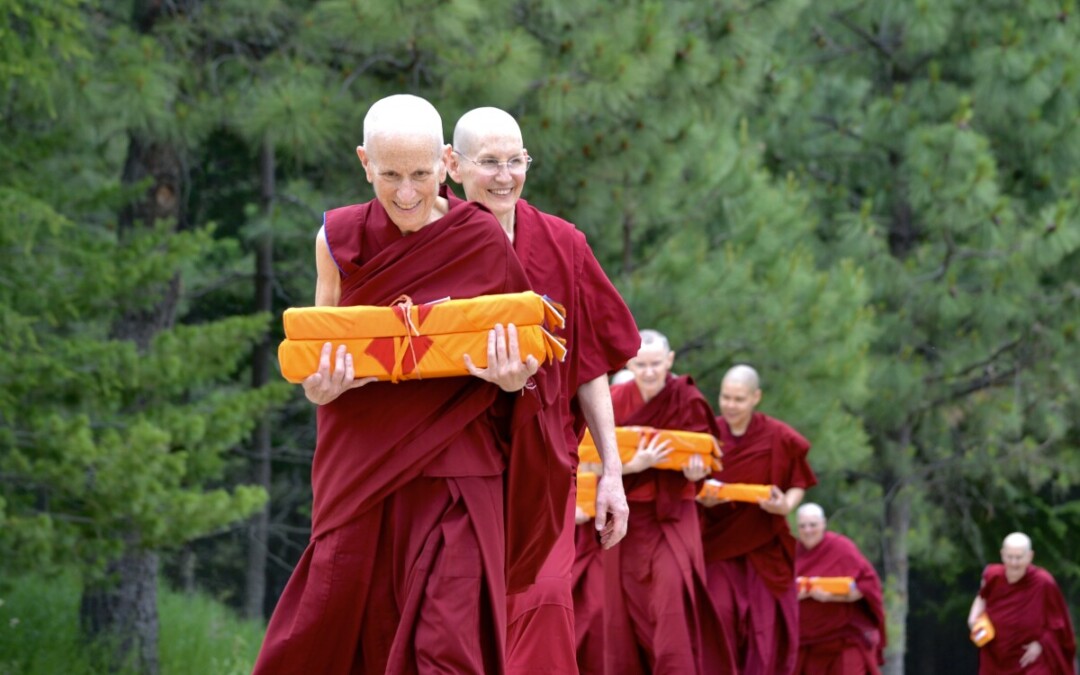I will comment more later. I will just note for now that Zen Buddhism and the Precepts can be shaped and turned into many forms: For some, war is an instrument of peace, nuclear weapons a means to preserve life.
I do not personally agree, but not all Buddhists are of one flavor.
Gassho, J
SatTodayLAH
I do not personally agree, but not all Buddhists are of one flavor.
A senior official in the White House tasked with advising President Donald Trump on weapons of mass destruction is an ordained Zen Buddhist chaplain, who long ago reconciled Buddhism's non-violent teachings with his support for aggressive, sometimes violent American foreign policy.
Christopher A. Ford, special assistant to the president and National Security Council senior director for weapons of mass destruction and counterproliferation, who is also a former Navy reserve intelligence officer, a Rhodes scholar and a State Department veteran, was ordained in the Prajna Mountain Order of Soto Zen Buddhism at the Upaya Institute and Zen Center in Santa Fe, New Mexico in March 2010.
...
The first, from 2009, is six pages, titled "Nukes and the Vow: Security Strategy as Peacework" and argues that Buddhists should not blindly latch onto complete global nuclear disarmament in the name of peace if their goal is indeed to "create a world that contains as little human suffering as possible." Nuclear weapons, Ford said, may be necessary for such an end.
"One foreign diplomat friend of mine likes to joke, at least privately, that the disarmament movement needs to be careful lest it 'make the world safe again for largescale conventional war,'" writes Ford, who took on the name Daigan during the training. "He is only partly joking, however. From the perspective of Buddhist compassion, some global security environments without nuclear weapons are surely less desirable than some scenarios that contain them. We must do what we can to avoid offering cures more harmful than the disease we seek to treat, and while it is notoriously difficult to predict outcomes -- one way or the other -- in the complex adaptive system of modern international politics, we are no friends of compassion if we do not at least worry about the potential unintended consequences of our policy agendas."
Christopher A. Ford, special assistant to the president and National Security Council senior director for weapons of mass destruction and counterproliferation, who is also a former Navy reserve intelligence officer, a Rhodes scholar and a State Department veteran, was ordained in the Prajna Mountain Order of Soto Zen Buddhism at the Upaya Institute and Zen Center in Santa Fe, New Mexico in March 2010.
...
The first, from 2009, is six pages, titled "Nukes and the Vow: Security Strategy as Peacework" and argues that Buddhists should not blindly latch onto complete global nuclear disarmament in the name of peace if their goal is indeed to "create a world that contains as little human suffering as possible." Nuclear weapons, Ford said, may be necessary for such an end.
"One foreign diplomat friend of mine likes to joke, at least privately, that the disarmament movement needs to be careful lest it 'make the world safe again for largescale conventional war,'" writes Ford, who took on the name Daigan during the training. "He is only partly joking, however. From the perspective of Buddhist compassion, some global security environments without nuclear weapons are surely less desirable than some scenarios that contain them. We must do what we can to avoid offering cures more harmful than the disease we seek to treat, and while it is notoriously difficult to predict outcomes -- one way or the other -- in the complex adaptive system of modern international politics, we are no friends of compassion if we do not at least worry about the potential unintended consequences of our policy agendas."
Gassho, J
SatTodayLAH




Comment